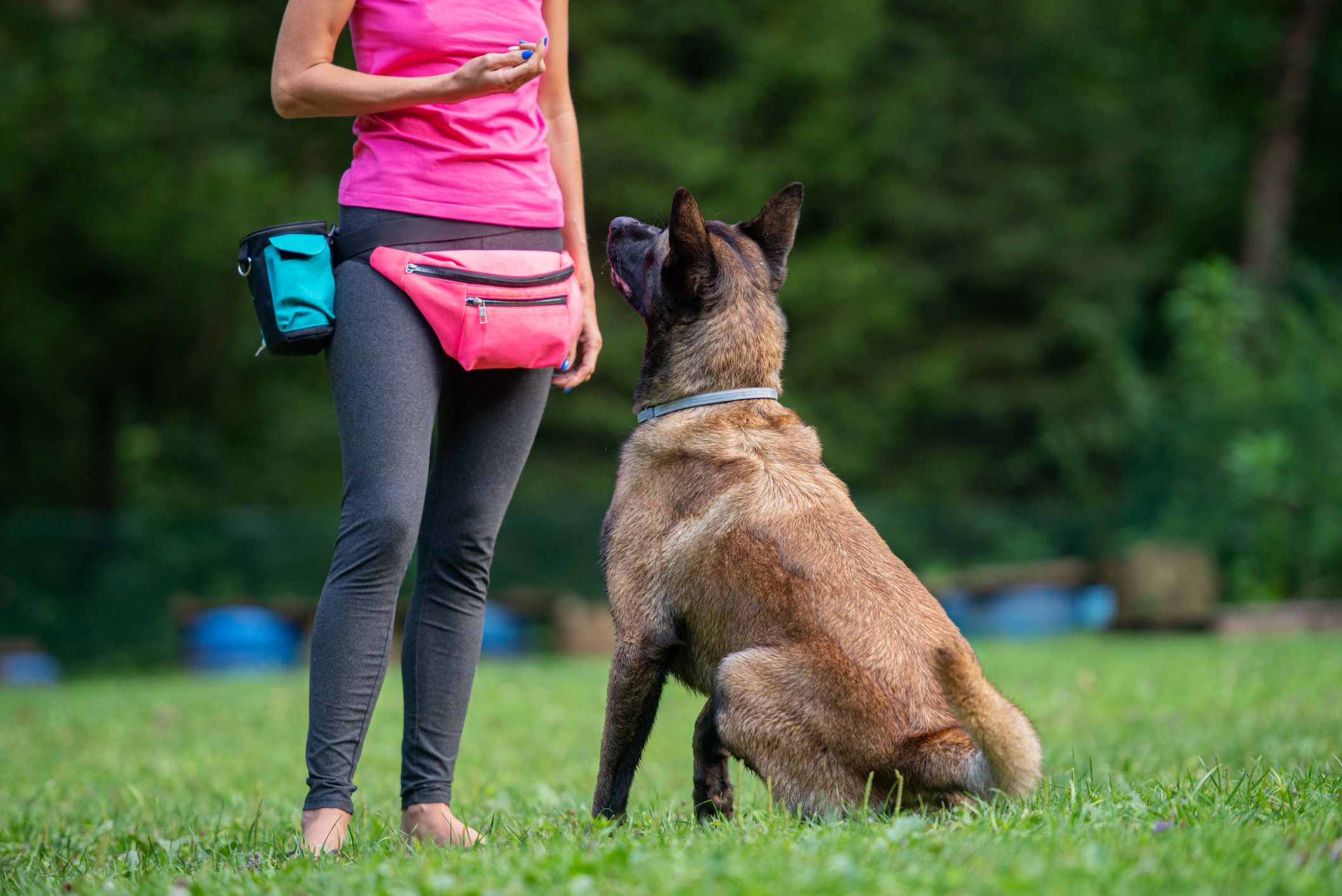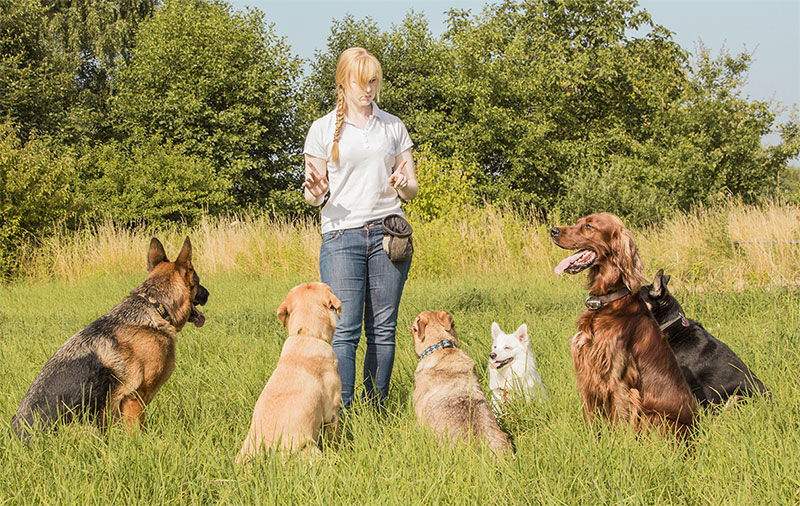How Positive Reinforcement Enhances Your Dog Training Journey
How Positive Reinforcement Enhances Your Dog Training Journey
Blog Article
The Ultimate Guide to Pet Training: Change Your Animal's Behavior
Effective pet dog training is essential for fostering an unified connection between pets and their proprietors. The ins and outs of canine behavior and the execution of organized training techniques play a crucial duty in this process. By recognizing the concepts of positive support, consistency, and socializing, animal proprietors can navigate usual difficulties that arise throughout training. This guide not just aims to outfit you with the required devices to transform your pet's behavior yet additionally invites you to explore exactly how these foundational principles can result in a much deeper connection with your pet dog. What may be the very first step in this transformative trip?
Understanding Canine Habits
Understanding canine habits is crucial for effective training and a harmonious relationship between canines and their owners. A pet dog's habits is affected by a mix of genes, atmosphere, and experiences. Dog training. Acknowledging these aspects permits proprietors to customize their training approaches to satisfy the private requirements of their family pets
Pet dogs interact mostly with body movement, articulations, and facial expressions. As an example, a wagging tail can suggest enjoyment or happiness, while a tucked tail might signify anxiety or entry. Observing these hints allows proprietors to react properly, strengthening favorable habits and dealing with negative ones efficiently.
In addition, recognizing the social framework of dogs can give insights into their behavior. Dogs are pack pets, and they prosper in a structured environment. Establishing clear limits and constant rules can prevent complication and advertise a feeling of protection.
Additionally, acknowledging the natural reactions of canines, such as the impulse to dig or chase after, is critical. These instincts can be redirected through ideal electrical outlets, such as play or exercise. By adequately recognizing these behavior aspects, proprietors can cultivate a positive training experience, inevitably bring about a loyal and well-adjusted canine friend.
Vital Training Methods
Efficient dog training relies upon a selection of crucial techniques that can dramatically improve the discovering procedure for both the pet dog and the proprietor. One essential technique is positive reinforcement, which entails fulfilling desirable behaviors with treats, praise, or play. This technique encourages dogs to duplicate the behaviors that bring about favorable results, cultivating a relying on partnership in between the animal and proprietor.
One more secret method is uniformity in commands and expectations. Making use of the same verbal signs and hand signals helps the pet dog recognize what is called for, decreasing complication and promoting quicker understanding. Furthermore, developing clear boundaries and regulations is critical for reliable interaction.
Socializing is also a vital element of training. Subjecting dogs to different atmospheres, individuals, and other pets assists them create appropriate social skills and lowers anxiety in strange situations.
Finally, persistence and timing are essential. Training sessions need to be frequent yet brief, guaranteeing that the canine stays involved and responsive. By utilizing these important techniques, proprietors can produce a favorable and structured training experience that promotes good actions and reinforces the bond with their canine friends.
Creating an Educating Set Up
How can a well-structured training timetable enhance a pet's learning experience? A training routine gives consistency, making sure that dogs receive normal, focused instruction. This predictability helps canines recognize what is expected of them, reinforcing their knowing and permitting for better retention of commands and actions.
When creating a training routine, it is vital to think about the canine's age, breed, and specific personality. Youthful puppies may take advantage of much shorter, more frequent sessions, while grown-up canines might love longer, much less frequent training periods. Incorporating a range of tasks can additionally keep the sessions engaging, avoiding monotony and advertising excitement for understanding.
Additionally, scheduling training sessions at particular times of the day can aid strengthen a regimen. Pairing training with everyday walks or play can develop a favorable organization with knowing. It is additionally essential to consist of time for support, such as treats or appreciation, to reward preferred habits without delay.
Finally, adaptability is essential. While uniformity is crucial, being adaptable to the dog's mood or power degree can boost their knowing experience. A well-crafted training routine inevitably lays the structure for reliable interaction and a stronger bond in between the pet and owner.
Common Educating Challenges
Despite having a well-structured training schedule, find pet dog owners commonly encounter various difficulties throughout the training procedure. One common issue is variance in commands and cues. When several member of the family make use of different terms or tones, a pet may come to be confused, impeding its ability to learn effectively.
An additional frequent difficulty is disturbance. Dog training. Canines are naturally interested animals, and exterior stimulations such as various other animals, sounds, or people can divert their interest throughout training sessions. This needs proprietors to create a controlled environment or progressively introduce distractions to strengthen emphasis
Additionally, differing energy degrees can impact training results. High-energy pet dogs might have a hard time to settle and focus, while a lot more laid-back breeds could need extra motivation to engage. Tailoring the training strategy to fit the specific pet dog's character is essential for success.

Building a Solid Bond
A strong bond between a pet and its proprietor is essential for effective training and overall wellness. Dog training. This partnership cultivates trust, which is important for effective interaction during the training process. When a dog feels linked and secure to its owner, it is more probable to react positively to commands and signs
To construct this bond, consistency is vital. Developing a regimen that consists of routine feeding, workout, and training sessions helps create a feeling of stability. Additionally, favorable reinforcement techniques, such as deals with, appreciation, and play, reinforce desired habits while strengthening the psychological link.
Socialization is an additional vital facet of bond-building. Exposing your pet dog to various settings, people, and various other pets assists them really feel extra comfortable and certain, improving the bond with their owner. Participating in activities together, such as walking, playing bring, or joining obedience training, promotes synergy and shared enjoyment.
Final Thought

Understanding pet dog behavior is important for efficient training and an unified connection between dogs and their owners.Reliable dog training depends on a range of essential methods that can dramatically enhance the knowing procedure for both the pet and the owner.In spite of having a well-structured training timetable, dog owners usually encounter different difficulties throughout the training procedure.In verdict, reliable dog training relies on a thorough understanding of canine behavior, the application of important methods, and the establishment of a structured training routine. By highlighting favorable support and uniformity, pet proprietors can dramatically boost their pets' behavior, ultimately ensuring a harmonious relationship and advertising the health of both the pet and its setting.
Report this page